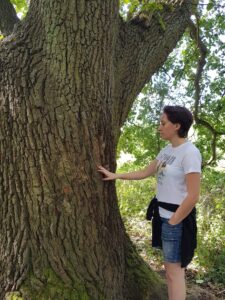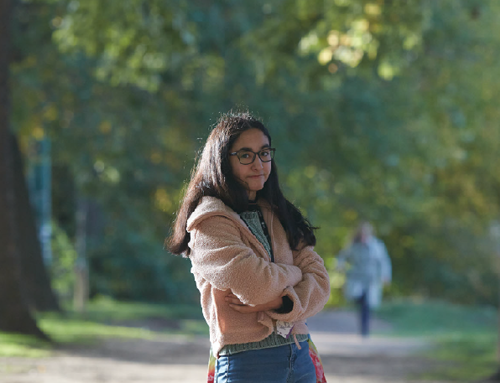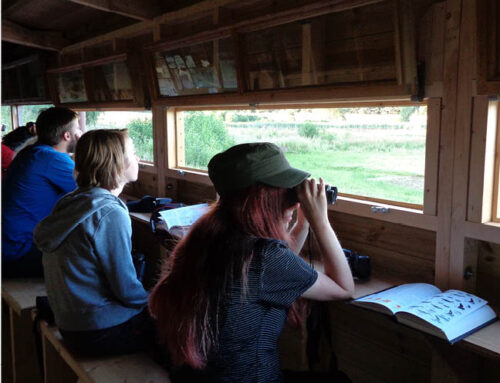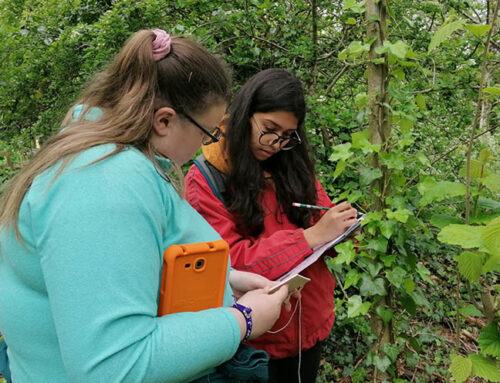 World Mental Health Day took place earlier this month, providing an opportunity for people and organisations across the globe, and from all walks of life, to talk about the important subject of mental health. While there is often still stigma around mental illness, it’s been heartening to see so many open conversations and supportive messages being shared, along with advice on the things we can all do to take care of our mental wellbeing.
World Mental Health Day took place earlier this month, providing an opportunity for people and organisations across the globe, and from all walks of life, to talk about the important subject of mental health. While there is often still stigma around mental illness, it’s been heartening to see so many open conversations and supportive messages being shared, along with advice on the things we can all do to take care of our mental wellbeing.
As someone who works in the environmental sector, I’m very aware of the tremendous benefits that spending time in nature can have on our mental health. It gives us space to escape our day to day worries, improves our mood and enables us to let go of negative emotions as we focus on the beauty of the natural world around us. With the last couple of years having made such a change to how many of us live our daily lives, taking some time to be in and appreciate nature more fully has never been more important.
Some of us, though, can find ourselves really worrying about nature and our environment. You may have heard the term ‘eco anxiety’ more and more frequently in recent years – but what is it?
Eco anxiety is worry about the environment and the threats it faces, perhaps most commonly with regard to climate change. So many of us are concerned about the future, and what it holds for the state of our natural world. Is it any wonder, in the face of frightening predictions about the impacts of climate change, that people are feeling anxious? This is especially notable when it comes to young people who are justifiably worried about the changes they will live through, in terms of the effects of and efforts to adapt to climate change.
Eco anxiety is an understandable response to an overwhelming situation and, while it is not in itself a mental health problem, can exacerbate existing mental health issues and trigger a great deal of stress. If you find yourself feeling stressed or anxious about climate change, or other problems impacting the natural world, know that you are not alone. It is an uncomfortable state to be in, but there are things we can all do to help make these feelings of anxiety more manageable.
- Channel your concern into meaningful action: we can all take steps to help prevent climate change and protect nature. Have a look at these suggestions.
- Spend time with likeminded people: join a group or project that is taking action to protect the environment and tackle climate change.
“Meeting so many other young people with such a passion for solving these problems, and learning about so many community projects around the world, gave me more inspiration to continue, and reassurance that it could be possible to try to tackle some of it” – Bright Green Future participant.
Check out our Projects and Opportunities pages for ideas.
- Get outdoors: spending more time in nature is a great way to improve your mood. Find out more about Ask 1, for young people to be given the opportunity to spend more time learning outdoors, here
- Make your voice heard: you can tell your political representatives what action you want to see taken to tackle climate change and protect the environment. Watch this video on how to talk to an MP.
Remember, if you need to talk about anything that’s troubling you at any time, there are people who will listen.
- If you’re under 19, you can call 0800 1111to talk to Childline. The number will not appear on your phone bill
- Text “SHOUT” to 85258 to contact the Shout Crisis Text Line, or text “YM” if you’re under 19
- Call 116 123to talk to Samaritans, or email: jo@samaritans.org for a reply within 24 hours




